NetMundial+10: Multistakeholder Dialogue to Strengthen Internet Governance
In São Paulo, Brazil, on April 29 and 30, NETmundial+10 was held, an event where representatives from different sectors met to discuss the strengthening of Internet governance and digital policy processes. At this event, Lilian Chamorro, coordinator of the secretariat of the Latin American and Caribbean Internet Governance Forum (LACIGF), was present, contributing from the perspective of the forum to the conversations on Internet governance.
NetMundial+10 since its 2014 edition, is a space where representatives from governments, the private sector, civil society, the technical community and academia can exchange ideas and strategies on current challenges in Internet governance. This year’s conference emphasized the evolution of these challenges and the importance of maintaining an inclusive, multi-sectoral collaboration to effectively address them.
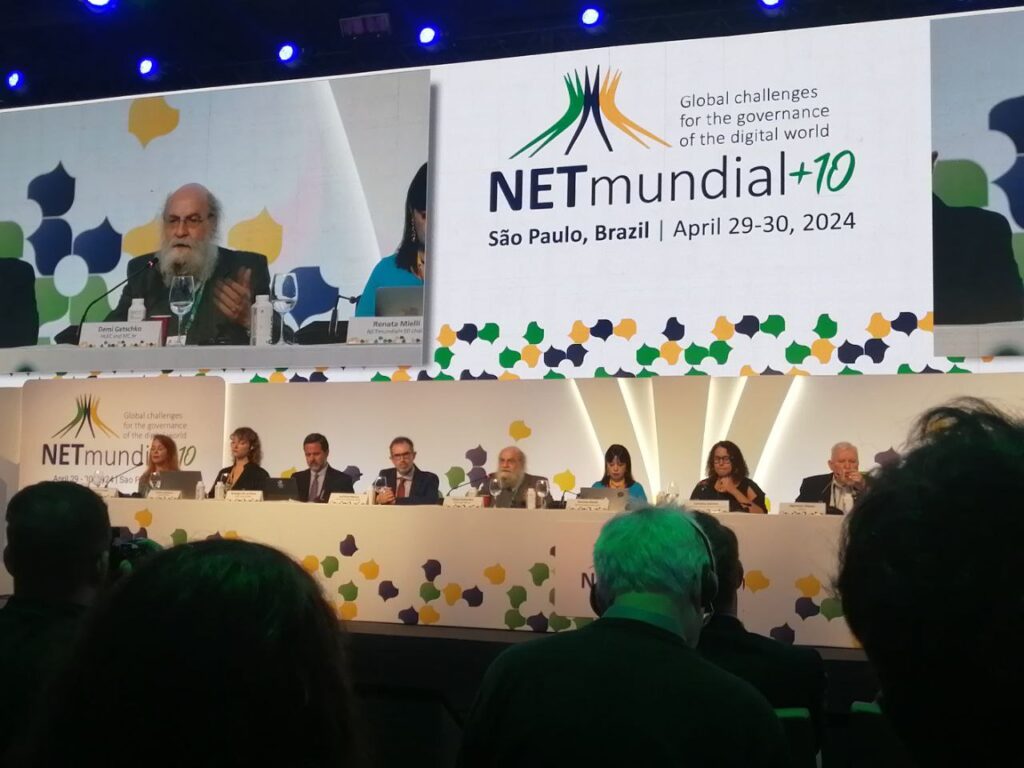
The event opened with remarks from Hartmut Glasser, executive secretary of cgi.br , who welcomed NetMundial+10 participants and recalled the first NetMundial in 2014, highlighting the rapid evolution of the Internet and how the event remains crucial to chart new directions and address challenges with solutions that represent different sectors.
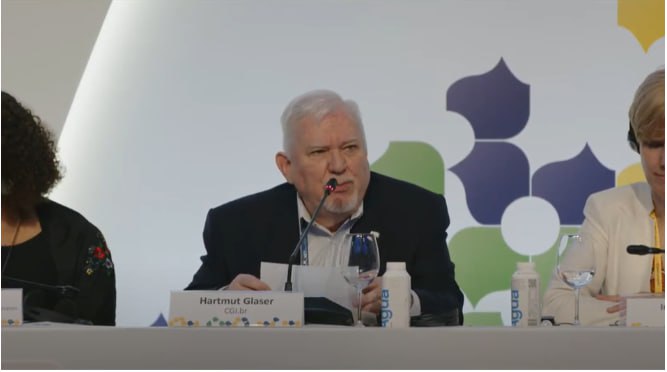
Among those who participated in this first panel were Demi Getschko, CEO of NIC.br, Luciano Mazza, representative of the Ministry of Foreign Affairs of Brazil, Virgilio Almeida, Universidade Federal De Minas Gerais (UFMG), Irina Soeffky, Federal Ministry For Digital And Transport Germany, Susan Chalmers, U. S. Department of Commerce, NTIA, Carol Conway, representative of Abranet (Brazilian Internet Association), Tawfik Jelassi, UNESCO, Camila Leite, Rights and Network representative of the C20 Coalition, Rodrigo de la Parra, representative of ICANN (Internet Corporation for Assigned Names and Numbers) and Renata Mielli, CGI. BR – NetMundial+10 Chair, among others who participated throughout the event.
Rodrigo de la Parra, ICANN representative, stressed the importance of principles such as inclusiveness and transparency, crucial for a global and secure Internet, and pointed out the challenges in multilateral environments that affect the effective participation of all stakeholders.
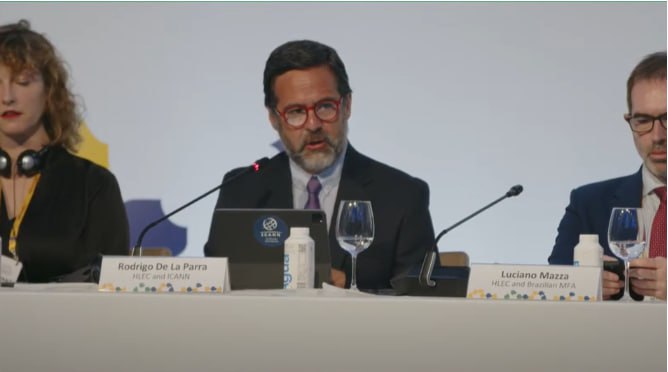
Several representatives highlighted the importance of the multi-stakeholder approach to Internet governance and digital policy. Susan Chalmers, representative of the United States, stressed the need to clarify the terms related to Internet governance and digital policy. Carol Conway of the Brazilian Internet Association (Abranet) highlighted the evolution of the internet and the community’s responsibility to preserve it, while Renata Mielli of CGI.BR reiterated the importance of inclusiveness and transparency in these processes.
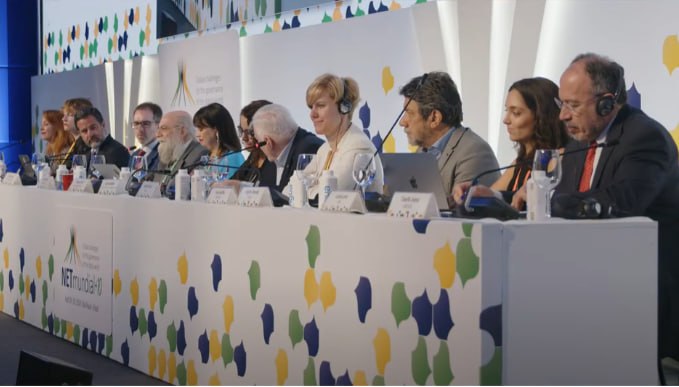
The NetMundial+10 conference focused on presenting the results of a pre-consultation and an outcome document of the event that highlights the need for better coordination among multiple digital governance processes and points to the importance of transparency and meaningful stakeholder participation. It also emphasized the continued relevance of the governance principles adopted in 2014 and the need to strengthen multi-stakeholder initiatives such as the Internet Governance Forum (IGF). In addition, the importance of empowering stakeholders with information and capacity for effective participation was mentioned, as well as the need for global cooperation to address the transnational challenges of the digital age.
Raúl Echeberría from ALAI – Asociación Latinoamericana De Internet de Uruguay moderated the session “Principles for Internet Governance Processes”, highlighting the contribution of Bertrand de La Chapelle’s previous intervention, where he mentioned that at Netmundial 2014 Internet governance principles were adopted, which are crucial to face current and future challenges. It was noted that these principles have not yet been fully implemented in local, regional and global processes. This session discussed the possibility of updating the principles and received feedback from the community on this topic.
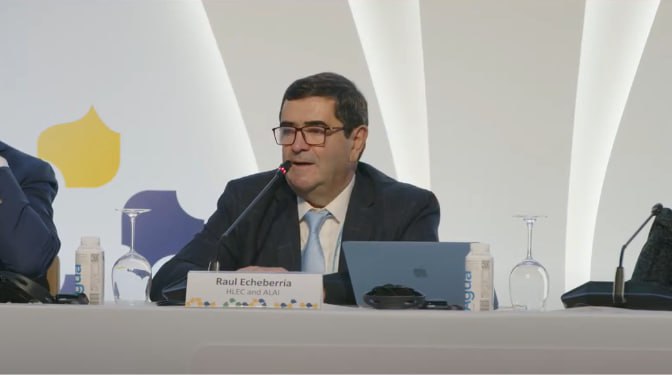
Nicolas Fiumarelli from the technical community mentioned the importance of considering the inclusion of all voices in Internet governance, highlighting an alternative approach called “aid-driven alternative” to facilitate a more equitable and efficient participation.
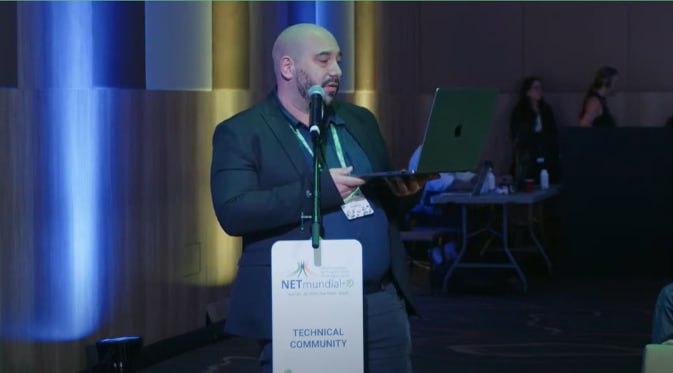
LACIGF’s participation in this meeting highlights the importance of engaging in global governance spaces to impact technology issues in Latin America and the Caribbean. This underscores the essential collaboration between diverse entities around the world, showcasing the diversity of voices and knowledge that comes together at events such as NETmundial+10 to foster a representative and enriching dialogue on Internet governance.
For further details and resolutions of this event, we recommend consulting the NetMundial+10 outcome document, which shows the result of the multistakeholder dialogue on Internet governance and digital policies, the consensus reached, the statements of principles and the roadmaps agreed upon.
